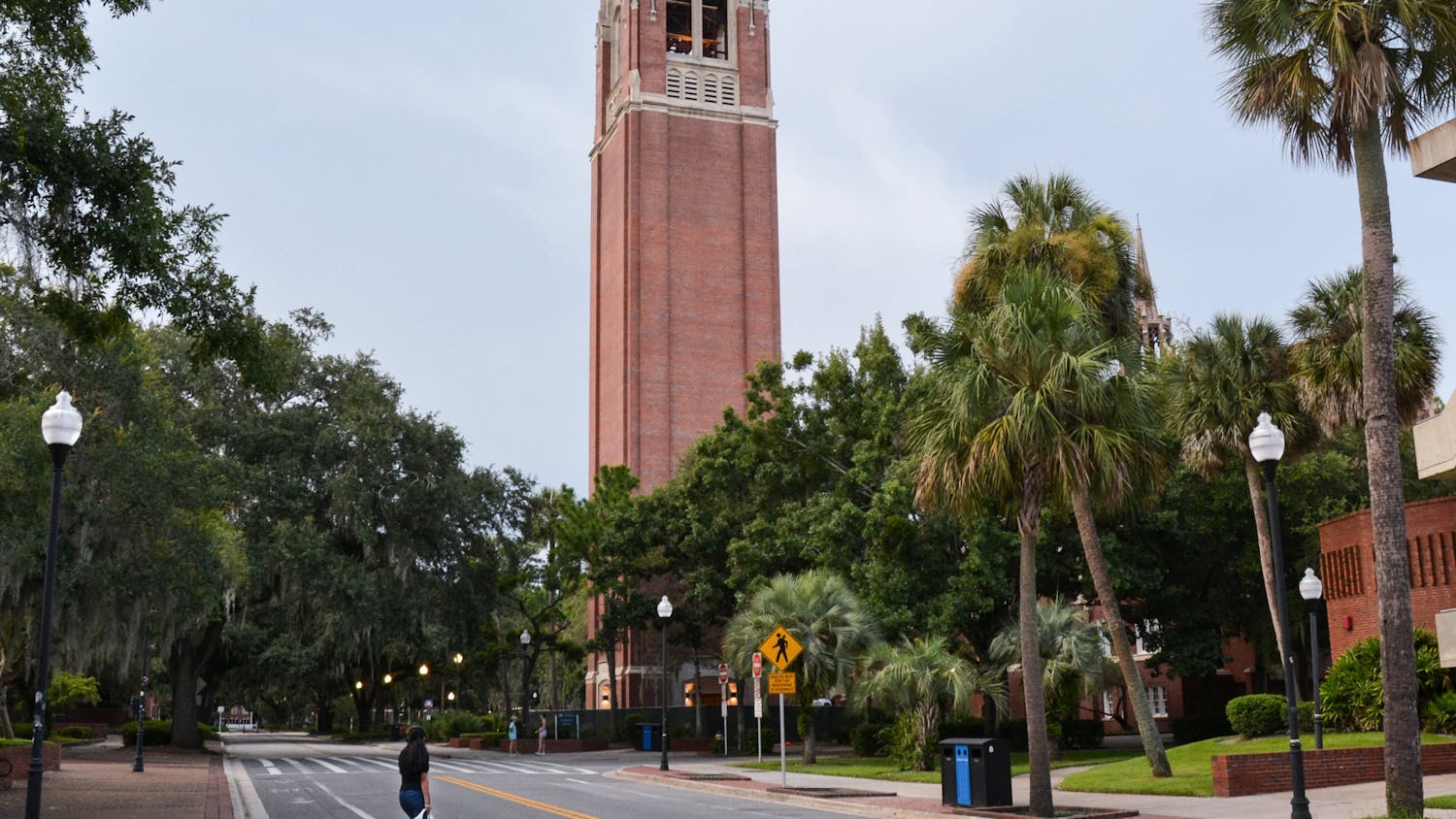DOMA is dead, and some locals are celebrating.
In a landmark decision Wednesday, the U.S. Supreme Court ruled same-sex married couples can now receive the same federal benefits as heterosexual ones.
The court declared the Defense of Marriage Act, a law signed by Bill Clinton in 1996 preventing the federal government from recognizing same-sex marriages legalized by states for the purposes of federal benefits, unconstitutional by a 5-4 vote.
Gainesville Community Alliance founder and president Joseph Antonelli said the ruling is a step in the right direction. The country is moving forward, he said.
Although Florida does not recognize same-sex marriages or civil unions, cities like Miami and Orlando have recently allowed domestic partnerships. UF extends domestic partner health insurance to all benefits-eligible faculty and staff, according to its human resources website.
Those kinds of benefits are what matter, said UF public relations junior Chris Pereira, who married Santa Fe journalism sophomore Raul Rodriguez in New York in December.
“Anyone can have a ceremony and consider themselves married,” Rodriguez, 25, agreed. “It’s more about the benefits that a couple acquires after becoming legally married.”
Pereira, 20, said he thinks there are not any missing benefits in the states that have already passed marriage equality.
Jarrod Cruz-Stipsits, the intercultural engagement director for UF Multicultural & Diversity Affairs, said the biggest victory is that more than a thousand different tax breaks, rights and benefits will be provided to same-sex married couples across the country.
“Same-sex couples will now be able to file joint taxes,” Cruz-Stipsits said. “[They] will be guaranteed under the federal government federal rights ... that straight people and straight married couples would as well.”
Throughout most of the overarching Supreme Court case, United States v. Windsor, a group within the U.S. House of Representatives called the Bipartisan Legal Advisory Group — BLAG, for short — voluntarily defended Section 3 of DOMA, even after U.S. Attorney General Eric Holder was directed by Obama to stop enforcing it.
Section 3, until recently, put into writing federal nonrecognition of same-sex marriages for the purposes of federal benefits, such as joint tax returns.
It didn’t, however, affect states’ laws. Even so, not everyone agreed with the decision.
In a statement, Sen. Marco Rubio said he thought “the Supreme Court made a serious mistake today when it overstepped its important, but limited role.”
“I believe that marriage is a unique historical institution best defined as the union between one man and one woman,” he continued.
But Antonelli remains hopeful that other states will soon legalize same-sex marriage.
“What we’ve done is we’ve cracked open the egg, and now we’re after the ingredients, and we won’t be satisfied until we’ve made a new omelet,” he said. “It’s going to happen.”
Edith Windsor is a widower who had to pay $363,000 in federal estate taxes after her wife died because the law prohibited gay couples from the same federal benefits and exemptions as straight ones. That law, the Defense of Marriage Act, or DOMA, was enacted in September 1996 by then-President Bill Clinton. Among other parts, Section 3 put into writing and enforced federal — not state — non-recognition of same-sex marriages for federal benefit purposes but had no direct effect on individual states’ laws. President Barack Obama announced in February 2011, after Windsor was filed, he had directed the Department of Justice to stop enforcing Section 3 of DOMA.
Windsor filed the initial complaint with the U.S. District Court, Southern District of New York, in November 2010. Her argument was that she was unconstitutionally declined her equal rights under the Fifth Amendment, and it would be the same main argument the U.S. Supreme Court would hear. At the time this complaint was filed, New York state allowed and provided benefits for same-sex marriages. Five months later, in April 2011, a group within the U.S. House of Representatives called the Bipartisan Legal Advisory Group, or BLAG, was allowed by the Department of Justice to defend DOMA Section 3 after U.S. Attorney General Eric Holder was directed by Obama to stop enforcing DOMA Section 3 in Windsor’s case. The BLAG then asked for the District Court to dismiss Windsor’s complaint. The next year, in June 2012, the court ruled in favor of Windsor.
Within weeks, the BLAG was allowed to appeal the decision in the U.S. Court of Appeals, Second Circuit. Windsor and her attorneys filed a special type of application, called a certiorari before judgment, to ask the Supreme Court to hear the case regardless of when the appeals court ruled on it. After this, the BLAG also filed a separate application with the Supreme Court to do the same thing. In September 2012, the appeals court heard arguments and in the next month upheld the lower court’s ruling that DOMA Section 3 was unconstitutional.
In December 2012, the Supreme Court agreed to hear United States v. Windsor. Near the end of March 2013, the Supreme Court heard arguments on all three questions. Last Wednesday, June 26, 2013, the court agreed with lower courts in striking DOMA Section 3.
The decision was made by a 5–4 vote, with the majority largely comprised of the liberal-leaning justices. It does not affect individual state laws allowing or prohibiting same-sex marriages but does extend federal benefits to those who live in states where same-sex marriages and domestic partnerships are recognized.
–Matthew Riva, Alligator Staff Writer




